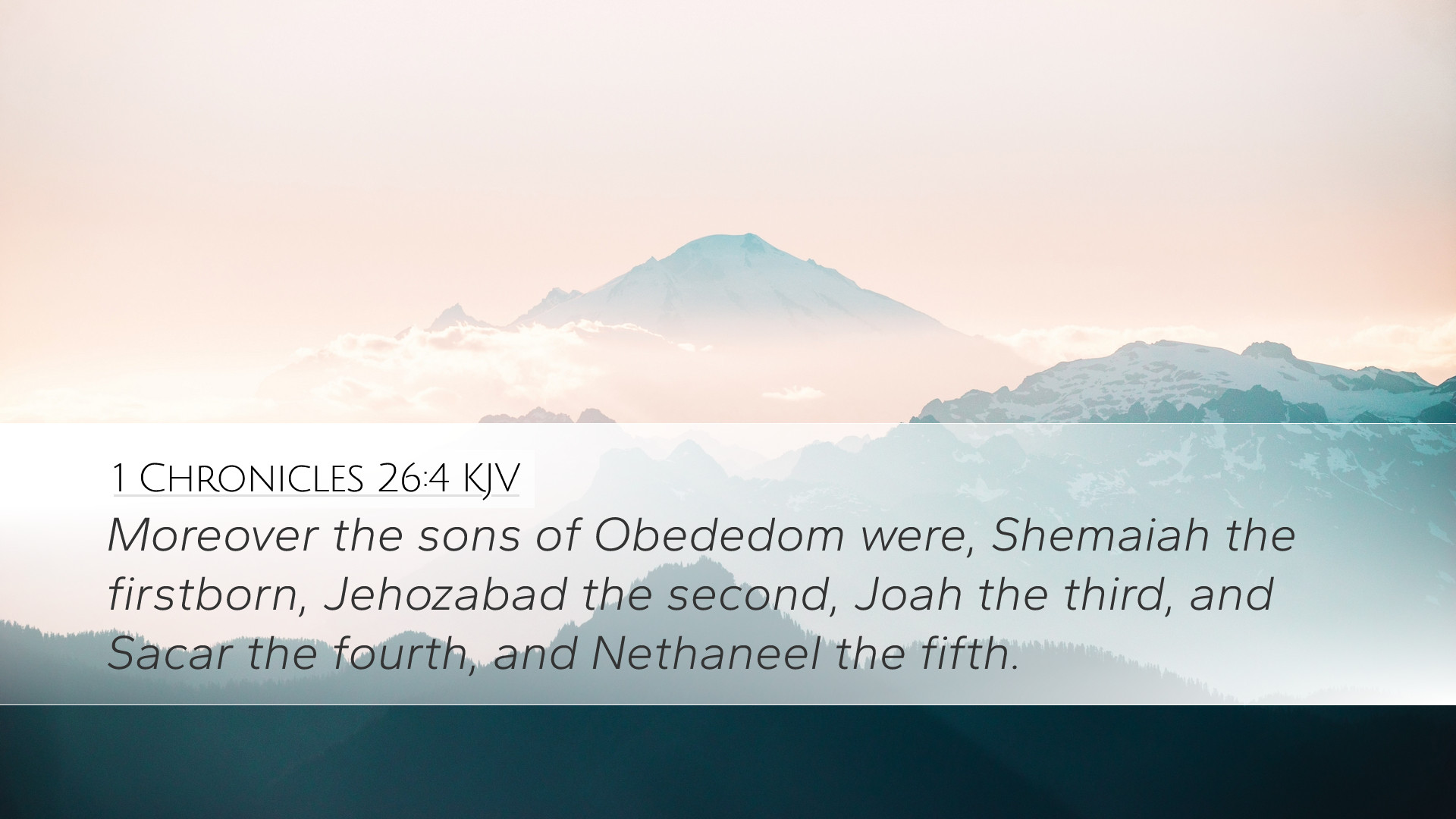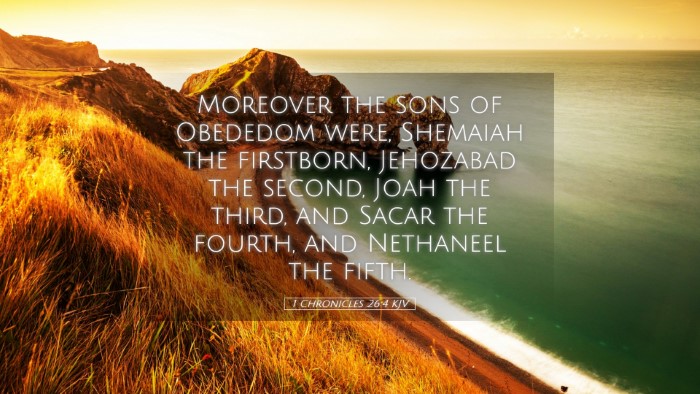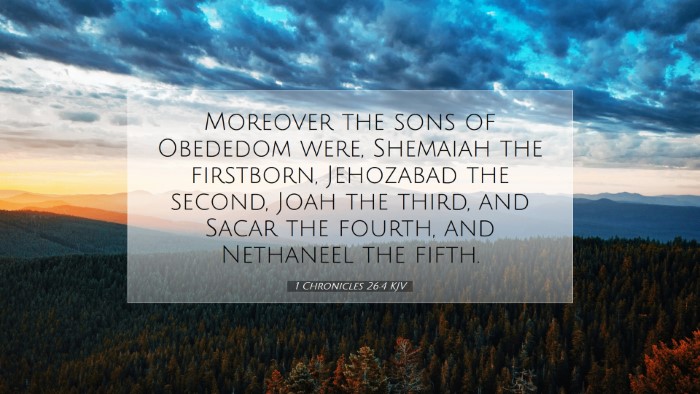Commentary on 1 Chronicles 26:4
Verse Context: 1 Chronicles 26:4 states, "And Obed-edom had sons; Shemaiah the firstborn, Jehozabad the second, Joah the third, and Sacar the fourth, and Nethanel the fifth." This verse introduces a key figure in the lineage of the Levites as well as highlighting God's favor upon the house of Obed-edom.
Historical Background
This verse is situated in the broader context of the organization of the Levitical duties during King David's reign. Obed-edom was a Gittite, a Philistine, who was initially blessed by God after the Ark of the Covenant was brought to his home. His family became significant in the service of the Tabernacle, illustrating God's redemptive plan extending beyond Israel's immediate ethnic boundaries.
Commentary Insights
-
Matthew Henry notes the significance of Obed-edom's lineage, emphasizing that even a foreigner could be blessed and incorporated into God's people. His commentary reflects on the theme of grace, indicating that God's selection of Obed-edom symbolizes the inclusivity of God's covenant and its availability to all who fear Him.
-
Albert Barnes comments on the naming of Obed-edom's sons. He suggests that the listing of names is significant in establishing the priestly heritage and duties assigned to them. Barnes emphasizes the importance of faithfulness to one's calling and how these roles were vital for the worship and order prescribed by God in Israel's worship practices.
-
Adam Clarke elaborates on the significance of Shemaiah, the firstborn. Clarke discusses the implications of birth order within Levitical duties and leadership roles, stressing that the firstborn had rights and responsibilities that shaped the family dynamics. He points out that this reflects a structured approach to ministry and worship, which is foundational in understanding the Levitical priesthood's operation.
Theological Implications
The mention of Obed-edom and his sons is not merely a genealogical record; it serves to highlight certain theological truths:
- Inheritance of Blessing: The blessing upon Obed-edom indicates that divine favor can extend across familial lines, suggesting that blessings from God are both individual and communal. This calls to mind the New Testament understanding of inheritance in Christ.
- Diversity in God's Plan: Obed-edom's origin as a Gittite underlines the multifaceted nature of God's chosen people, foreshadowing the inclusion of Gentiles in the New Covenant, as echoed in Romans 11.
- Responsibility in Worship: The naming of the sons implies an assigned role in the Levitical service, which reflects the broader theme of responsibility in worship and service—an important facet for leaders today.
Practical Applications
For pastors, students, theologians, and Bible scholars, the lessons drawn from this verse hold significant practical applications:
- Emphasizing Family Ministry: There is an encouragement towards cultivating spiritual legacies within families and churches, modeling how one generation's faithfulness can influence the next.
- The Role of the Church: The church serves as a contemporary reflection of the inclusivity found in Obed-edom’s acceptance into the Levitical ministry, advocating for a welcoming posture towards all people.
- Understanding Structured Service: This verse illustrates the importance of order in worship, calling leaders to ensure that churches are organized and that roles are clearly defined for effective ministry.
Conclusion
1 Chronicles 26:4 beckons us to look beyond the surface of genealogical records and see the profound truths about God's grace, the nature of worship, and the importance of our roles within the body of Christ. As we reflect on the family of Obed-edom, may we be inspired to embrace our calling, nurture our spiritual heritage, and extend our hands to all, recognizing that we are co-heirs in God's redemptive story.


